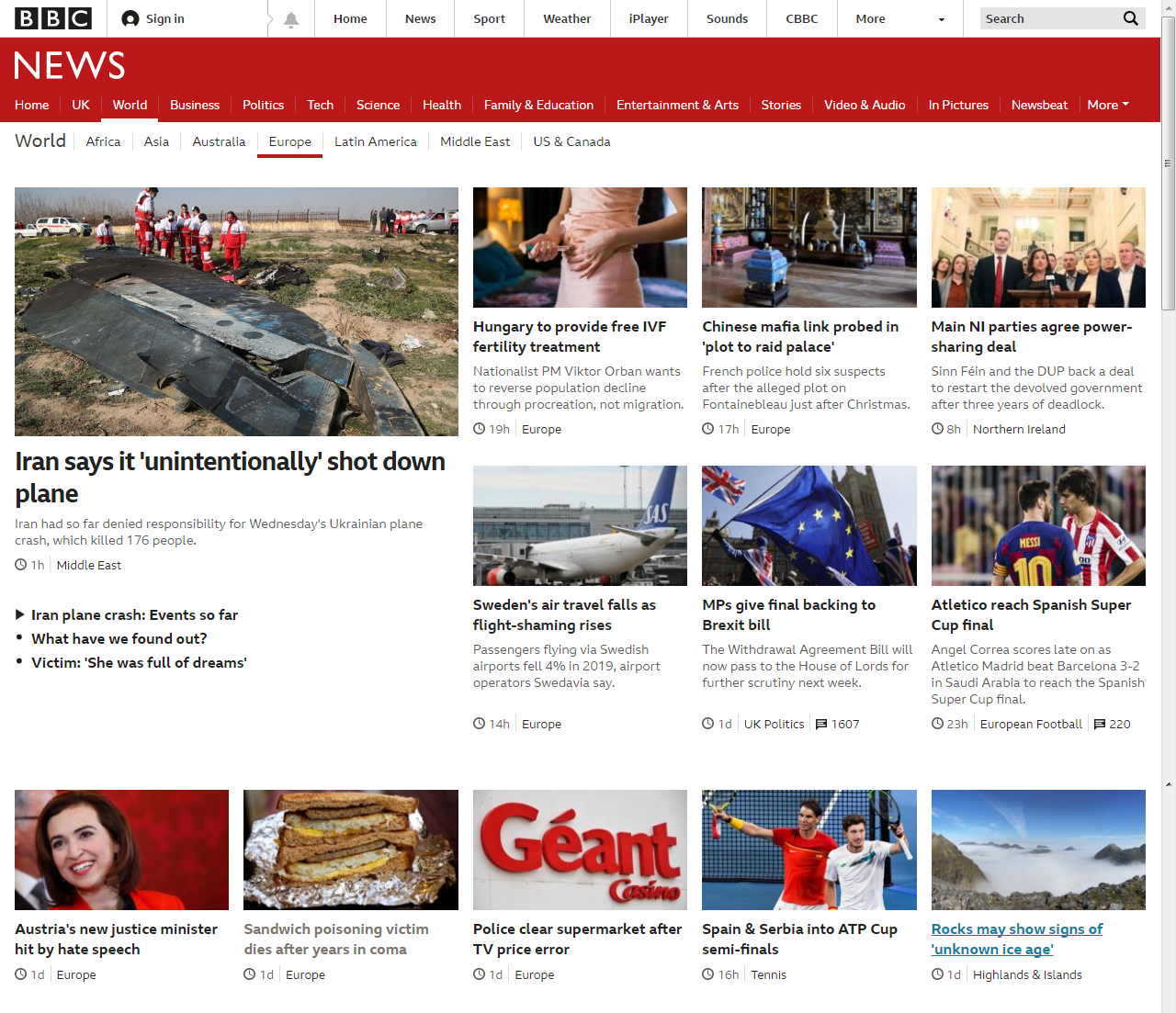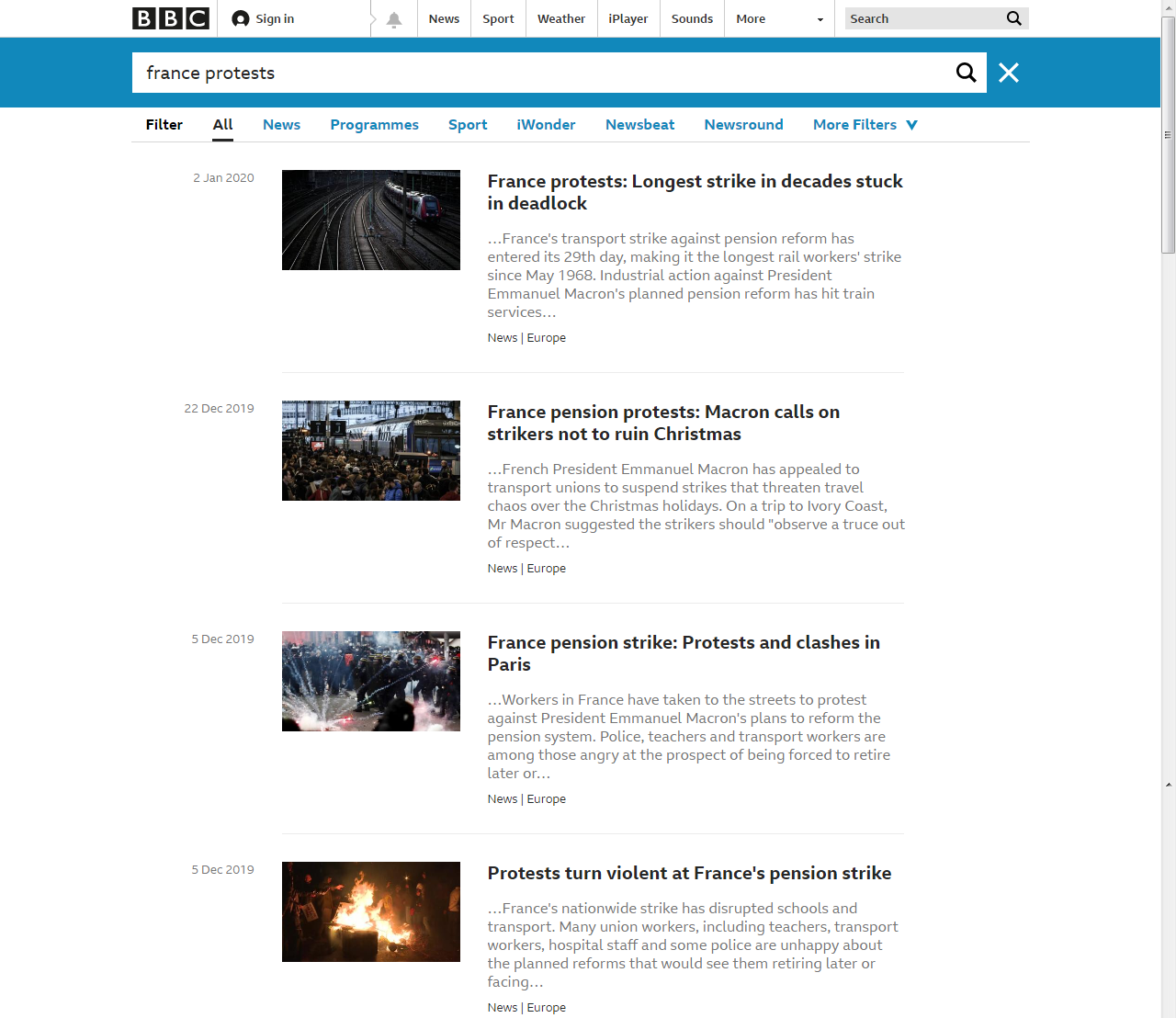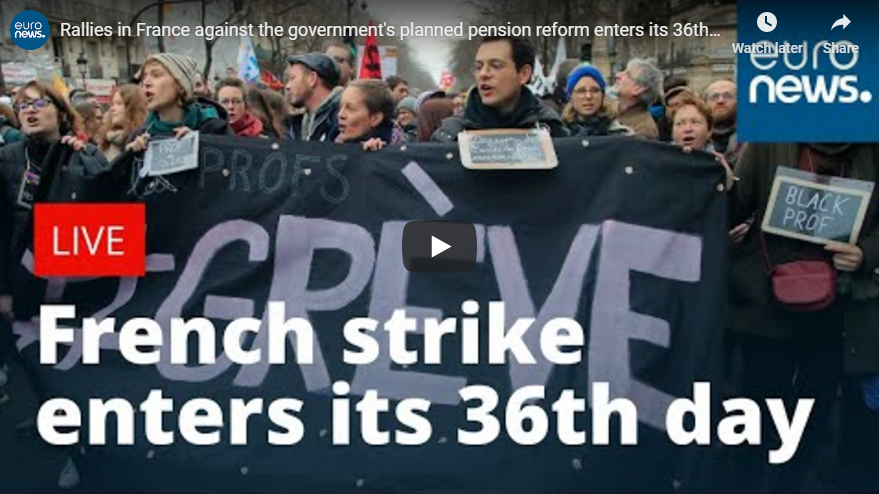It is interesting what current affairs stories the BBC is sending in our direction today. The airliner shot down in Iran, the return of Stormont, the turmoil at the Palace, the interminable soap opera that is the Labour Party, and so on.
Two are missing. The first is obvious: why would they want to publicise the fact that a judge decided the glint in Jeremy Vine’s eye from the light of an autocue did not require any particular skill or experience and was certainly not worth paying him seven and a half times more than an equivalent journalist – oh, and the every-so-slightly-connected historic tribunal win for Samira Ahmed? The second is not so obvious, and equates to censorship.
Ask yourself this: if there had been a national rail strike in this country since the beginning of December, and it had led to riots on the streets of Middleborough forcing the police to use tear gas against hundreds of thousands of protestors, do you think it might just make the main BBC News? At the very least you might expect it to be prominent on their website, would you not? So how would you feel if it wasn’t even mentioned there?
I chose Middlesborough for this analogy because it is approximately 213 miles north of London. You will be pleased to hear that the events I mention are not happening there. But they are happening daily 213 miles south of London – in Paris. Yet, while we are treated every lunchtime by the BBC to the banal awakening thoughts of the world’s most prolific tweeter on the other side of The Pond, they have made barely a mention for more than five weeks of the utter chaos being suffered by our nearest neighbour whose land border is barely 20 miles from ours across La Manche.
I will not go into the causes of that chaos, you can read those for yourselves by clicking on the image above which will take you to the latest of a daily series of lead articles in The European, but I would like to examine the mentality of those controlling the current affairs department of our national broadcaster in barely mentioning this story.
I can understand, in a perverse sort of way, why the start of a national transport strike in France on 4th December last year was not headline news for the BBC. We were, after all, a week away from polling day here in the most important election of our lifetime (their words) so their focus was obviously more parochial at that point. I won’t speculate whether potential chaos anywhere in Europe could have undermined an anti-Brexit editorial policy. Bias in the BBC? Heaven forbid and perish the thought! And anyway, France is always on strike, isn’t it?
But, bearing in mind that the BBC ultimately ‘lost’ their fifth election in a row, and in as many years – with a result not going the way they were calling it – one might have expected they would be looking for stories to hide their embarrassment. How did I get to five, you ask? Three general elections, one referendum and a presidential election, all of which were not only forecast incorrectly right up to the exit poll, but were actively-campaigned against the ultimate ‘victors’.

Centralised BBC focus away from world events not deemed, editorially, as prime-time headline news has progressively become much worse during the first fifth of this century than I remember from the second half of the last. But information on, in their eyes, more fringe events has normally been available somewhere in their website or social media activity. Try and find anything on their website about the current situation in France and you will struggle – it’s not even one of the current top-twelve stories on the front page of the European section of the website (see screenshot above) which even include a story about a German dying after four years in a coma from eating a sandwich! If that isn’t censorship, what is?
Entering ‘Harry and Meghan’ into their website article search tool returns nearly twenty different results just from the last two days. Entering ‘France protests’ brings only four results since the beginning of December. OK, some readers may think that to be an adequate balance unless, perhaps, they are just about to embark on a visit to the continent to, or via, France when I suspect the focus may be different.

But the bottom line here is that, if our new government is really moving to make changes to their funding model, the corporation might be best engaged in asking itself why they have moved so far away from Lord Reith’s original vision for them.

